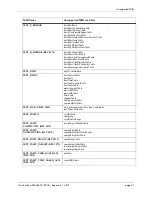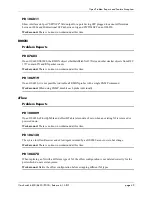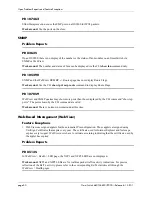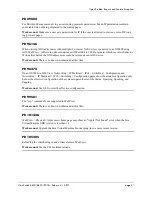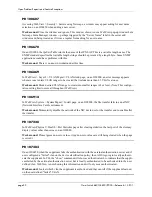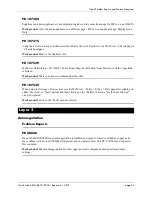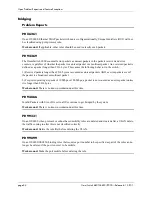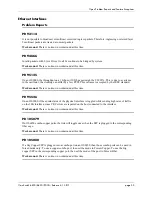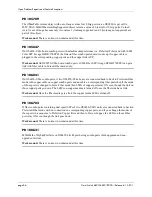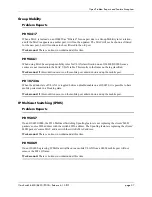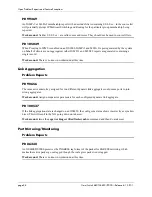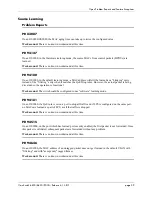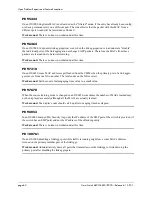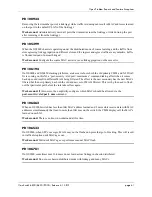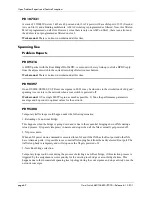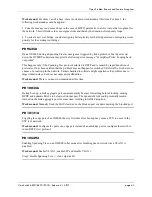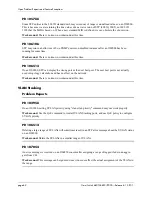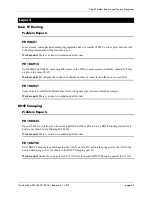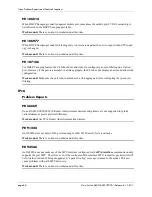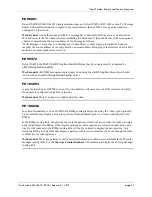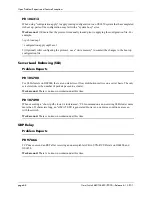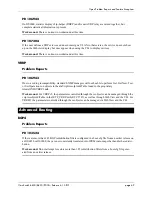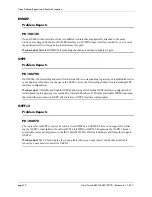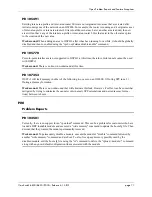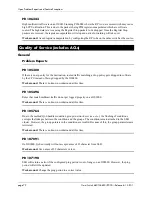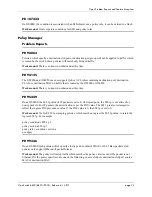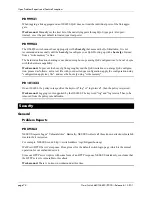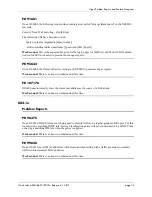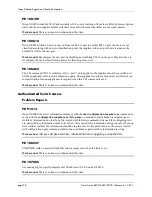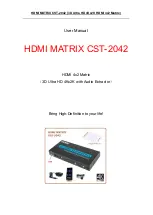
Open Problem Reports and Feature Exceptions
OmniSwitch 6800/6850/9000—Release 6.1.3.R01
page 61
PR 100932
Removing the last member port of a linkAggr while traffic is running can result in MAC addresses learned
on that port in the default VLAN of the linkAggr.
Workaround:
Administratively down all ports that transmit across the linkAgg or link down/up the port
after removing it from the linkAggr.
PR 105399
When the OS9000 chassis is operating under the distributed mode of source learning and the traffic from
slots egressing link aggregation on different slots and the ingress and egress traffic are asymmetric, traffic
is flooded instead of unicast bridged.
Workaround:
Configure the source MAC as static or use link aggregation on the same slot.
PR 106194
On OS6800 and OS6850 stacking platforms, a takeover reboots both the old primary CMM and NI. If traf-
fic is coming on this NI, a 'port-security <slot/port> maximum x' command taking affect when it comes
back up could result in different MACs being filtered. The effect is the new secondary has the new MACs
filtered but the new primary has both the old and new set of MACs filtered. This is why the need to flush
out that particular port before the rule takes effect again.
Workaround:
If this occurs, then explicitly configure which MACs should be allowed via the
port-security <slot/port> mac
command.
PR 106462
When an OS9000 switch has less than 16K MAC address learned and 2 more slots receive data with MAC
addresses simultaneously that lead to more than 16K mac on the switch, the CMM displays all the MAC's
learned on each NI.
Workaround:
There is no known workaround at this time.
PR 106533
On OS9000, when STP converges, MACs may not be flushed on ports that go to blocking. This will result
in traffic disruption until MAC ages out.
Workaround:
Wait until MAC ages or perform a manual MAC flush.
PR 106781
On OS9000, sometimes max 16k macs do not learn across linkagg in chassis-distributed.
Workaround:
Do not use chassis-distributed mode with linkagg and many MACs.

